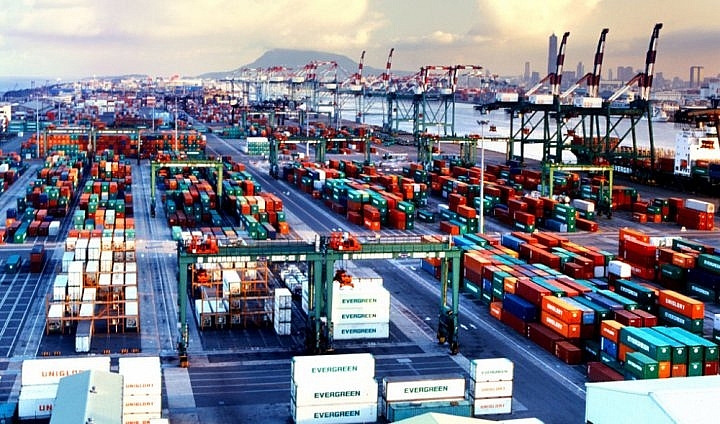Project launch showcases potential of trade and logistics sectors
 |
| Vietnam's logistics growth ranks 64 among 160 countries worldwide |
Designed to establish a national system for collecting, processing, and publishing transport and trade logistics statistics on an annual basis, the project is part of the World Bank’s support to Vietnam’s integrated programme for trade facilitation and logistics development.
Despite substantial increases in public investment in infrastructure, trade-related infrastructure has not kept pace with export growth. Weak infrastructure and transport links—especially weak corridors connecting key value chains to main international gateways—as well as high transport costs, poor quality of transport, and logistics services are constraining trade potential.
“Developing a robust logistics data system is crucial for designing and implementing effective policies to enhance Vietnam’s logistics performance and competitiveness,” said Sebastian Eckardt, lead economist of the World Bank in Vietnam.
Financed by the multi-donor Trust Fund for Statistical Capacity Building (TFSCB), managed by the World Bank, the project also provides technical support for project implementation through a partnership between the World Bank, the International Transport Forum, the Organization for Economic Cooperation and Development (OECD), and the Australia-World Bank Partnership Programme.
Also marking the signing of the TFSCB grant agreement, the workshop showcased international practices and key components of a good logistics statistics system and discussed the importance of reliable transport and logistics data in Vietnam.
The data will be used for strategic planning purposes and to formulate and monitor the implementation of policies related to transport infrastructure as well as trade and logistics development. It will also help logistics firms to access reliable data for their business development.
Earlier, at the national conference on logistics one month ago, Prime Minister Nguyen Xuan Phuc determined the key role of logistics in the economy. The sector received development support from the ASEAN Economic Community. “If we do not do well, firms of other countries will do. Vietnam does not have many strong enterprises in logistics, thus they need support mechanisms and policies from the state,” noted the PM.
He said that logistics costs challenge enterprises, as well as reduce the competitiveness of the economy. Less investment into transportation vehicles and weak connectivity are disadvantages at some locations, especially in the Mekong River Delta.
The national conference focused on policies and development plans on logistics, infrastructure, and connectivity, solutions for the balanced development of types of transport and human resources development.
| According to the World Bank, the annual average growth of the Vietnamese logistics sector is around 14-16 per cent, ranking 64th among 160 countries around the world, and fourth in the ASEAN (behind of Singapore, Malaysia, and Thailand). However, the most outstanding issue is the high logistics costs, which is equivalent to 20.9 per cent of the GDP, and consists of 59 per cent in transportation costs. |
What the stars mean:
★ Poor ★ ★ Promising ★★★ Good ★★★★ Very good ★★★★★ Exceptional
Related Contents
Latest News
More News
- Foreign leaders extend congratulations to Party General Secretary To Lam (January 25, 2026 | 10:01)
- 14th National Party Congress wraps up with success (January 25, 2026 | 09:49)
- Congratulations from VFF Central Committee's int’l partners to 14th National Party Congress (January 25, 2026 | 09:46)
- 14th Party Central Committee unanimously elects To Lam as General Secretary (January 23, 2026 | 16:22)
- Worldwide congratulations underscore confidence in Vietnam’s 14th Party Congress (January 23, 2026 | 09:02)
- Political parties, organisations, int’l friends send congratulations to 14th National Party Congress (January 22, 2026 | 09:33)
- Press release on second working day of 14th National Party Congress (January 22, 2026 | 09:19)
- 14th National Party Congress: Japanese media highlight Vietnam’s growth targets (January 21, 2026 | 09:46)
- 14th National Party Congress: Driving force for Vietnam to continue renewal, innovation, breakthroughs (January 21, 2026 | 09:42)
- Vietnam remains spiritual support for progressive forces: Colombian party leader (January 21, 2026 | 08:00)

 Tag:
Tag:
























 Mobile Version
Mobile Version